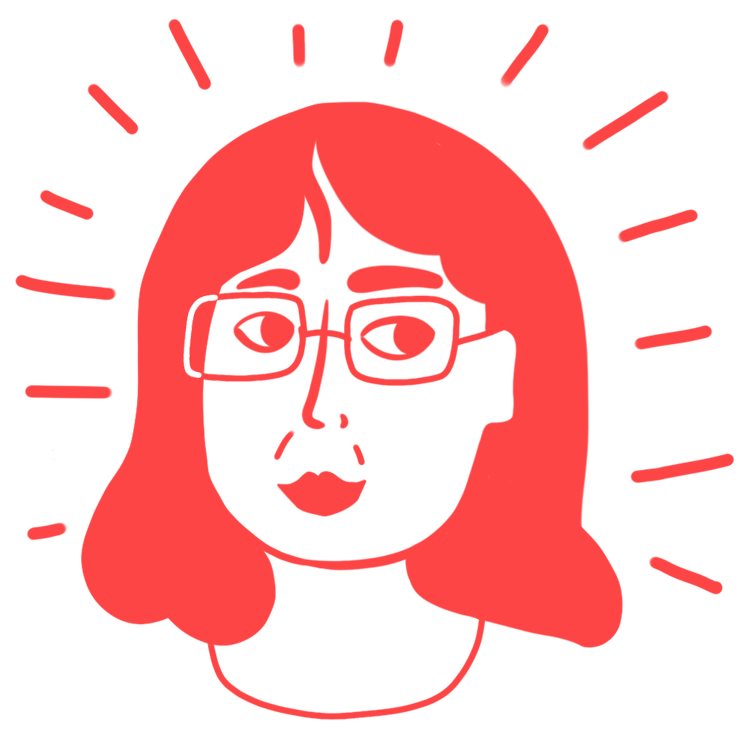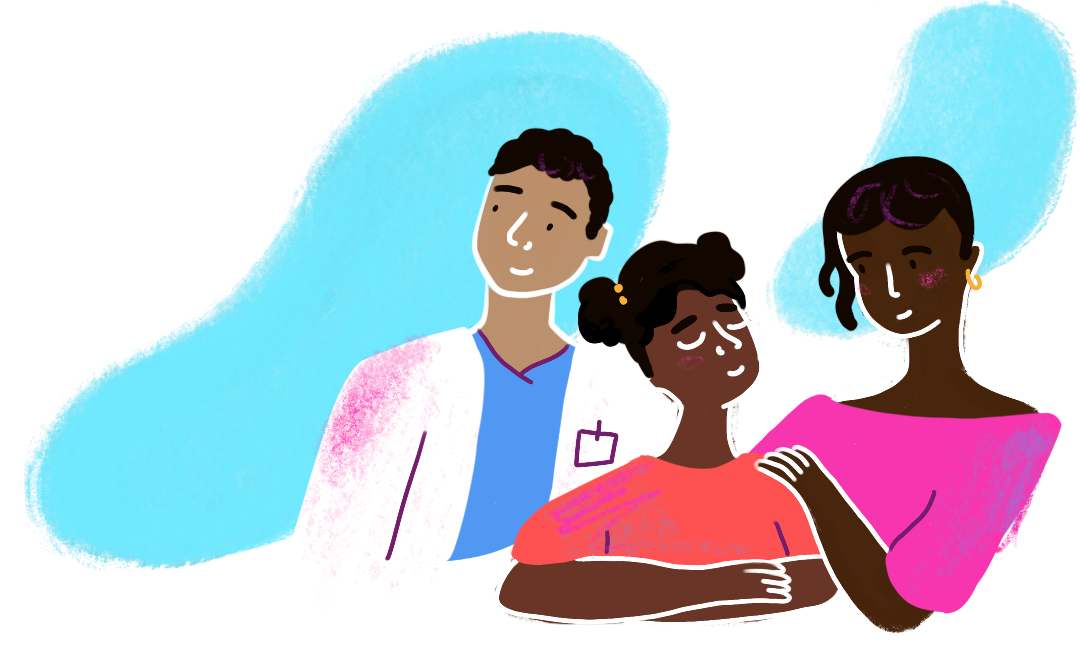How to get the most out of your notes: FAQs for patients
Here are answers to common questions people ask about open notes.

After a medical visit, doctors, nurses, and other health care providers write notes that summarize important information about you. These notes become a part of your medical record. When a note is shared with you, it becomes an “open note.”
An open note may include:
- A summary of what you told the doctor or nurse, also called a “history.”
- The provider’s findings from a physical exam. Examples may include: blood pressure, weight, how your lungs or heart sound, a description of a growth on your skin, or observations about your mood.
- Your provider’s thoughts about results of your lab tests, x-rays, scans, biopsies, or other tests.
- Summary thoughts about any medical conditions or symptoms. This section may also be called “assessment” or “impressions.”
- Recommendations made during the visit. This section is often called the “treatment plan” or “plan of care.” Notes might include ordered tests, prescribed medications, follow-up appointments, referrals, exercises, or recommended changes to your diet.
How notes look depend on many things, including: who wrote the note, the kind of visit you had, or where you get care. Some notes are short. Others might include a complete description of your visit. Longer notes may include additional details about your health, such as past problems or test results. Some notes may include information that doesn’t seem relevant due to various insurance requirements or other rules and regulations.
The most common way to access your notes is through the online secure patient portal which is hosted by your healthcare provider. Using this secure and free portal, you can, among other things, request appointments, message your health care team, and view your health record, including the notes. If your doctor or nurse does not use a web portal, you can request a digital or paper copy of these records for free. If you are not registered on the portal, contact your provider’s office to find out how to create a portal account.
Research shows that most people remember less than half of what they talk about with their doctor. An open note helps you remember important information. It also gives you freedom to review details of your visit at any time.
Studies show that reading open notes can help you:
- Manage your health care in a way that makes you feel more confident, prepared, and in control
- Better understand your medications and what you need to do between visits
- Remember to schedule follow-up appointments and tests, such as mammograms or eye exams
Do you rely on help for your own care? Sharing notes makes partnering easier. Many adults help parents, children and others facing medical issues. People who read their notes say the notes make it easier to share health information with family members and others.
Information is power. More than 9 out of 10 people report understanding their notes. Open notes also build trust between patients and their health care team.
Having access to and looking at your medical information helps you ask better questions. Research also shows that people who read notes can identify mistakes in their records and help make sure the records are accurate.
Read your notes after a visit and refer to them in between visits. Often, the notes contain things you forget. They may remind you about important plans, medications, tests, or other next steps. When you review your note, make sure the information is accurate and up to date. Let your healthcare team know if there’s a problem you feel is important. Check to make sure the medications you are taking are named correctly in your notes. And make sure the medications match your name and describe how much you take and how often.
Read your notes between visits if you need to remind yourself about your treatment plan. Reading your notes can remind you of upcoming procedures, tests, and appointments.
Use your note to make a “to do” list for yourself. Bring it to your next visit.
You might share your note with family, care partners, or others involved in your care. It’s important to have your entire care team on the same page.
Before your next visit, read your note to remind yourself about your last conversation with your doctor or nurse. Ask yourself, “What has happened since I last saw my doctor? What are my two or three most important goals or questions for this visit?”
Does this note accurately describe the visit?
Are the medications, symptoms, and health problems correct?
Should I share my note with another member of my care team or family?
Is there anything I’m worried about that I want to clarify?
Is there anything I don’t understand? Could I get help with understanding medical terms, a diagnosis, or the care plan?
Is there information I forgot to share with my doctor, like symptoms or important family history?
Are there mistakes in my record that I should follow up on?
Reading notes may not be right for everyone. Follow your instincts. For some people, just knowing that the notes are available is enough. Thousands of patients report that the benefits from reading notes are greater than the risks. In fact, reading notes may build or reinforce your trust in those taking care of you. And studies show that few people report feeling harmed by what they read.
A federal law gives you the legal right to receive and review all of your medical records, including the notes. Most doctors and other health care professionals are required by law to make notes available by electronic means without an extra charge. This includes sharing notes through secure patient portals. The vast majority of notes should be available no matter what health condition you may have. However, there are a few exceptions to this law.
You can ask for a free paper copy of your notes if they are not yet online. If you have trouble accessing your notes, visit whereismymedicalrecord.org for helpful next steps.
- You may need help finding the note within your electronic record. Unfortunately, that’s not always easy.
- The note may not be ready. In some practices, notes are available quickly. In others, it may take several days for them to appear in your record.
- The doctor, nurse or other health care provider may not yet be sharing notes.
- The note may have been written before your health system began sharing notes.
- Your doctor, nurse or therapist may have chosen not to share this particular note. We encourage you to talk with them about this. It’s best to be on the same page.
If you are having trouble finding your notes, first contact the help desk at your doctor’s office. If you still cannot access your notes, visit whereismymedicalrecord.org for helpful next steps.
If you spot mistakes in your record, bring them to the attention of your medical team. An example of a mistake is if your doctor wrote “left knee” when they should have written “right knee.” When asking for corrections to a note, focus on inaccuracies that could affect your current or future care. If you feel the error is serious, make sure you contact the office of whoever wrote the note. Your healthcare provider’s office should have a process for fixing significant errors in your record.
Open notes do not change the confidential relationship you have with your health care providers. Doctors and nurses can share your information only with health professionals involved in your care. Sometimes this can include sharing information with administrative personnel, such as for billing purposes or to make sure you are getting quality care.The information in your records is about you, and you have the right to share it with others. You can share your medical information with a care partner, family member, or anyone you feel you might want to include. This is your choice.Remember to ensure your privacy when using an online patient portal. Here are a few suggestions:
- Keep your login name and password private.
- If someone is helping you with your care, ask your health care provider if that person can have their own “proxy access” to your portal account rather than sharing your login information with them.
- Always exit the patient portal website by selecting “sign out” or “log out” when you are done using a computer or cellular device.
OpenNotes is a global movement. We encourage and study open and transparent communication in health care. We work with patients, families, doctors, nurses, social workers, and other clinicians. We are part of the Beth Israel Deaconess Medical Center, which is a Harvard Medical School teaching hospital. Our work is not-for-profit, and we are supported entirely by grants and donations. To learn more, and to consider making a donation, please visit the About page.


 OpenNotes is a global movement. We encourage and study open and transparent communication in health care. We work with patients, families, doctors, nurses, social workers, and other clinicians. We are part of the Beth Israel Deaconess Medical Center, which is a Harvard Medical School teaching hospital. Our work is not-for-profit, and we are supported by grants and donations. To support OpenNotes and to learn more, visit the
OpenNotes is a global movement. We encourage and study open and transparent communication in health care. We work with patients, families, doctors, nurses, social workers, and other clinicians. We are part of the Beth Israel Deaconess Medical Center, which is a Harvard Medical School teaching hospital. Our work is not-for-profit, and we are supported by grants and donations. To support OpenNotes and to learn more, visit the 

